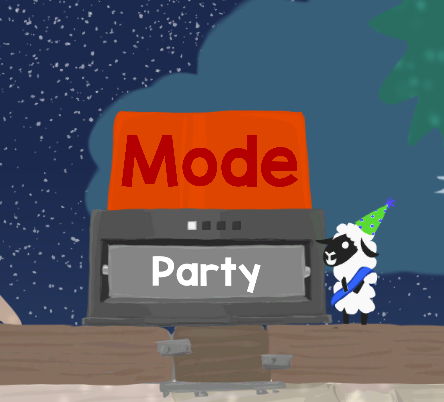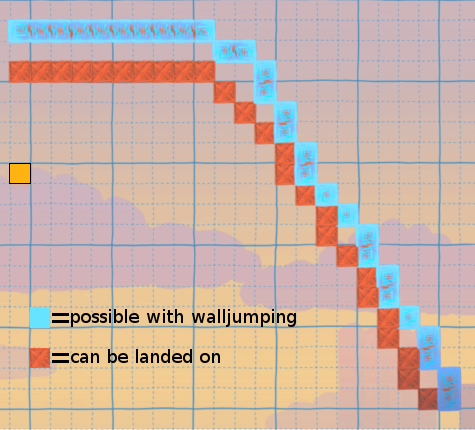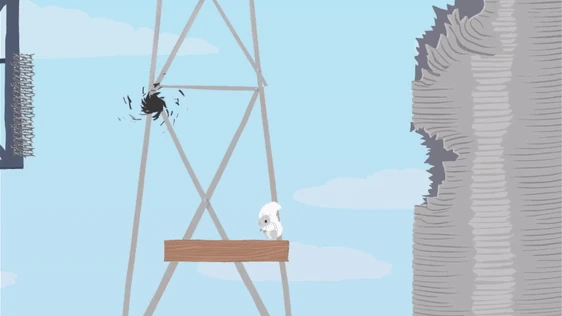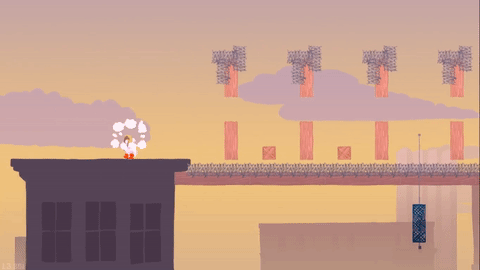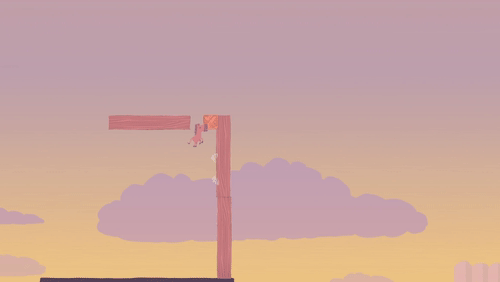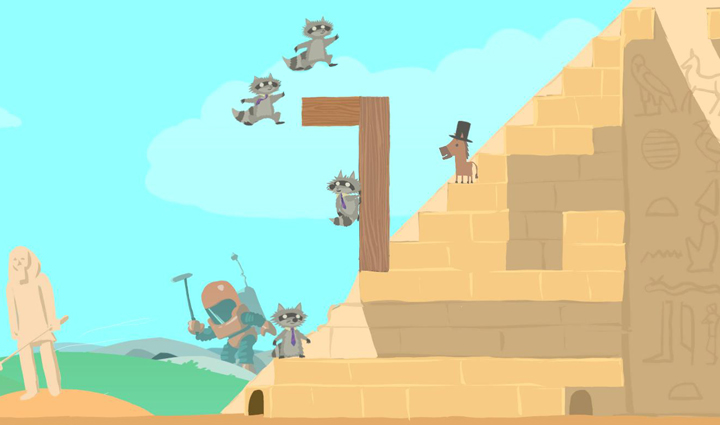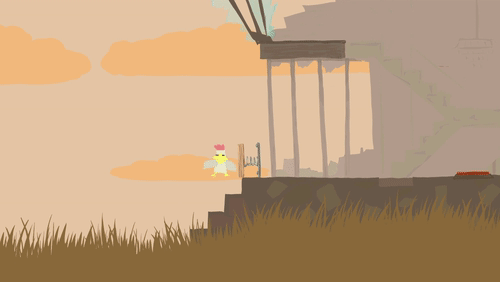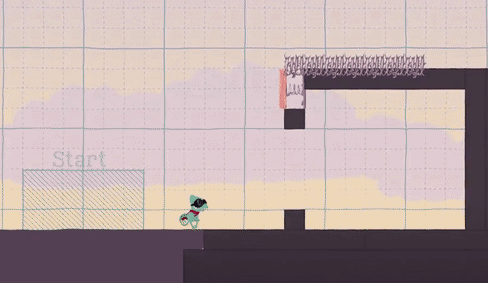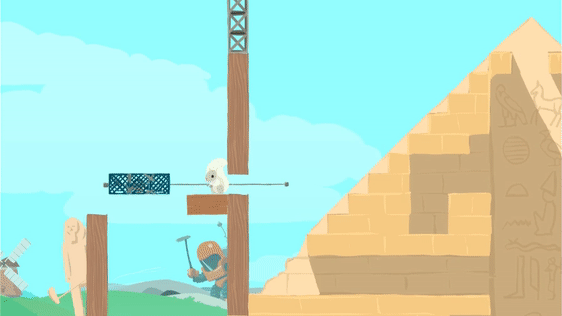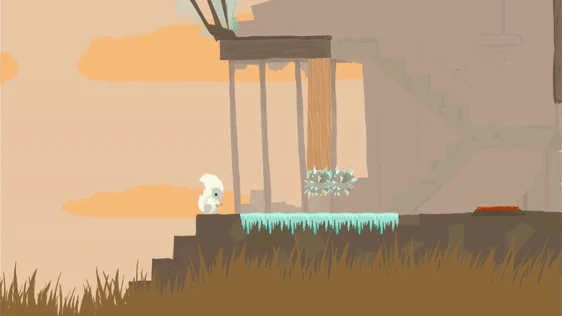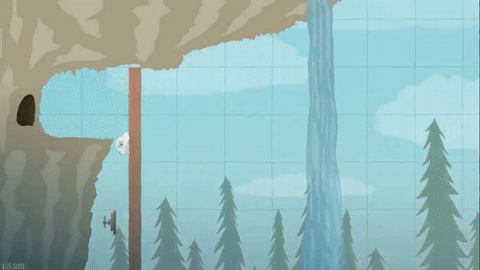коды алтимейт чикен хорс
Game Modes
This button in the treehouse can be used to switch between gamemodes
The Game Mode is one of the game rules that can be found in the Treehouse menu. It changes the way the game is played. There are currently 4 game modes to select from.
The Rules menu also provides several options for the host to further configure the game which vary depending on the selected game mode.
Contents
Party Mode
This is the default game mode. In Party mode at the beginning of each round the so-called Party Box appears, containing several random blocks players can choose between and then place. After placement is over, the characters appear and they are able to go through the level. As soon as all contestants have reached the goal or died, points are distributed and the Party Box appears again. This process continues to repeat itself until a player wins the game or the time/round limit is reached. The winner of the game is the one who manages to reach the point limit first. If the round or time limit is reached before that, the player with the most points wins.
By default, If there are only two players playing and the Double Party Box option in the Game Rules is enabled, they will receive two boxes every round. This means that in total they are able to place just as many items as a group of four players. This mechanic can be disabled or set to be in effect even for more than two players in the game rules.
Sudden death
In the case of a simultaneous arrival at the point limit (scores need not be equal) by multiple players or an equal amount of points between them when the time/round limit is reached, sudden death is activated. In Sudden Death the players keep respawning when they die and the first one to reach the goal wins the game. There is also a one-minute time limit for them to finish. If nobody reaches the goal in time, the game will end in a draw.
Creative Mode
This game mode is very similar to Party Mode but instead of choosing from the Party Box the players can open their inventories and pick any block they want to. The decision of what to pick is not absolute in this mode as players can go back and choose something else if they change their mind. Already placed blocks may be moved instead of placing something new. It’s also possible for the host to configure the amount of blocks a player can place (or move) per round in Creative mode.
Sudden death
Creative mode has sudden death enabled as well and it works the same way as it does in Party mode.
Challenge Mode
This mode allows players to compete for the fastest completion times in custom levels which have been uploaded. For every level there are two leaderboards: One for the overall fastest time and one for the fastest time with all coins. When played with multiple players at the same time, the average of all their times will count towards special leaderboards which are separate from the singleplayer times.
Free Play
In contrast to the other three this game mode is not competitive. The players have an unlimited supply of blocks at hand and can use it to create a custom level layout for saving, uploading and playing in other modes later. While in this mode, players can also hold B (or RMB) to switch between item placement mode and level testing mode at all times. Free play mode also features a selection of exclusive permanent blocks and allows the blank level in the treehouse to be selected.
Movement
Contents
Jumps
This is the most essential form of movement for getting on top of or over objects and gaps. The longer the jump button is held, the higher a jump will be. The default jump height is 5 blocks.
Sprint Jump
It is possible to sprint jump from the yellow block to any of the shown blocks
The most useful type of jump is the sprint jump. Sprinting will make the controlled character move a lot faster than normal. This makes it possible to jump much further but also a little harder to control where the character lands. It is generally advised to sprint-jump unless in a special situation.
Slow Jump
Jumping without holding the sprint button is only helpful in a few scenarios. If a jump has to be very precise and is not too far away, this jump is the safer option.
Low Hop
It’s possible to perform a jump that is as low as 1 tile by pressing the jump button very lightly and extremely quickly.
Wall Jump
Wall jumps can be used to get from one object to another that is next to it without landing on top of it or to simply climb up lone walls by pressing the jump button repeatedly while touching them. Sprinting matters while wall-jumping, as characters will bounce back further when sprinting and higher when not sprinting.
Coyote Jump
The Coyote Jump is a normal jump performed after walking off a ledge and is quite common in platformer games. It is possible because there is a small time-frame after walking off a platform during which you can still jump. This technique is mostly used to gain more horizontal range on a jump or to jump around corners.
Black Hole Jump (or Gravity Assist)
By jumping underneath the black hole the player can gain height
The gravitational pull of a black hole can be utilized to boost a player’s jump considerably. This is a very dangerous practice however because most of the time the effect the black hole will have on the player cannot be predicted perfectly.
Two-Tile Jump
One way a player can get through two-tile jumps
When multiple objects create a two units high opening between them, this jump is required. Many players consider this a very annoying jump. Because the player model is almost exactly two units high, getting through such an opening that is not on ground level can be tricky. But normally it is just a matter of patience to succeed this jump. It is advised not to sprint when trying to wall-jump through a two-tile opening. The quick-jump (see below) makes it a lot easier to get through openings like this.
Quick-Jump
A Quick-jump is the fastest way to climb a wall and is necessary when a lethal object such as a spike ball or barbed wire is on top of a wall that has to be vaulted over. To perform a Quick-jump the player has to wall-jump without sprinting and start sprinting right after leaving the wall. This technique can also be used to get through one tile wide gaps from the bottom while wall jumping.
One-Over Jump
One-over jumps allow you to get through a one block wide gap one tile away from the wall. The best way of doing this is using quick-jumps to get into position and then using a regular wall jump without sprinting to slither through.
Wide Wall Jump
A rough depiction of the path a player has to take when performing this jump
If an object on top of a single wall extends two tiles beyond the wall’s side that has to be climbed, this technique is required. The trick is to first jump away from the wall and then go back towards it at the right moment mid-jump so one can get up by jumping off the extended ledge. It is necessary to sprint throughout the entirety of this process.
Spring Jump
A player falling for a spring jump trap
If you jump while running into a spring turned sideways, you will jump much higher. Almost as if you jumped off of a spring facing upright. This technique is not only useful for jumping higher but also for tricking other players.
Spring-boosted Wall Jump
By performing a wall jump as close to a spring as possible while having upwards momentum the player can gain a considerable boost to their jump height and distance. This only works if it is on the same level as the wall and is quite difficult to execute because it requires good precision and timing.
Extruding
A very simple extruder design utilizing a blue platform
Extruding is the art of being pushed through a small (1×1) opening by a moving object. It is advised for a player to crouch if they want to extrude because in some circumstances not doing this can lead to being crushed. Alternatively, the extrusion can also happen by standing on top of the object and riding it through a gap.
Sliding
Sliding is very similar to extruding. By running on a surface covered in ice and then ducking, one can slide through one tile high holes.
Crawling or Crouchwalking
While it is normally impossible to control your character while ducking, certain circumstances allow you to crawl through one tile high gaps. The game only allows you to crawl when there already is a block above your head. This can be accomplished by having an object move over your head, riding on an object, sliding or being pushed into a gap.
Wall Sliding
While a narrow miss, slow sliding can mean the difference between life and a stupid death.
Holding up or down while sliding down a wall will change the speed with which the character is moving. This allows you to dodge obstacles that you may end up hitting otherwise. Ice can mess with these tactics but not by much. The slower wall slide also helps with getting into two tiles high openings: Simply holding up and the correct direction while sliding onto it from above will make your character get into the gap.
Other
There are many other things you can do, mostly by combining some of the techniques mentioned above. This video showcases a lot of the more advanced tricks in the game:
An Introduction to Competitive Ultimate Chicken Horse
